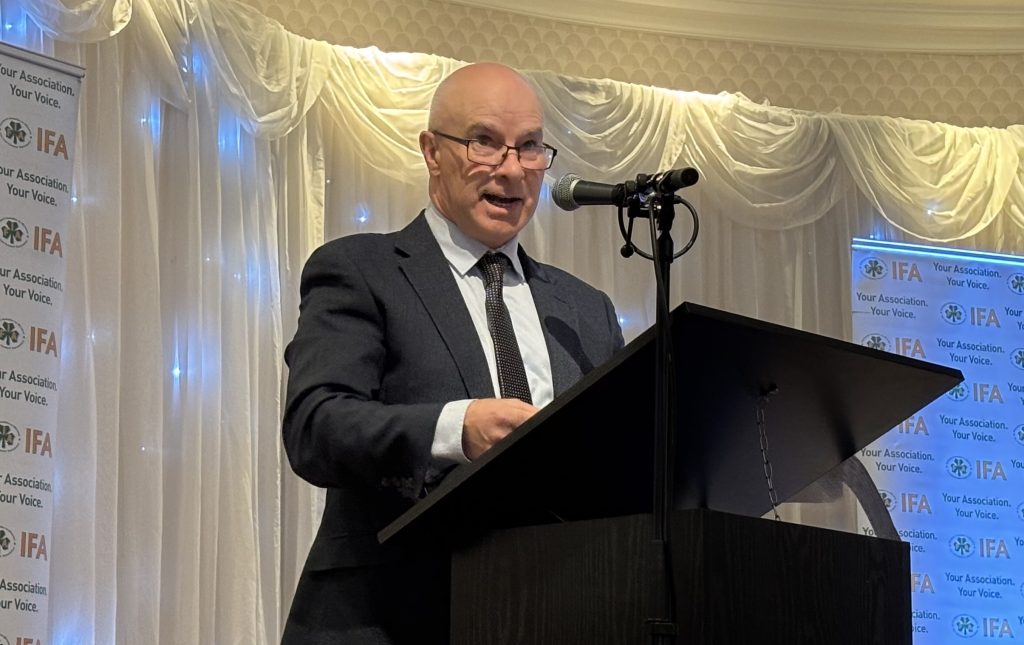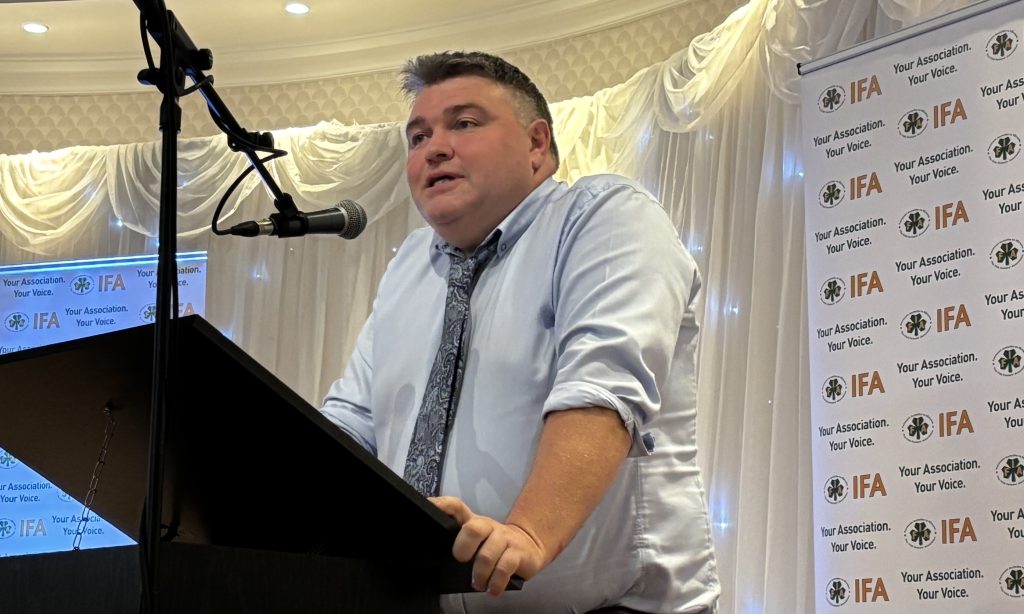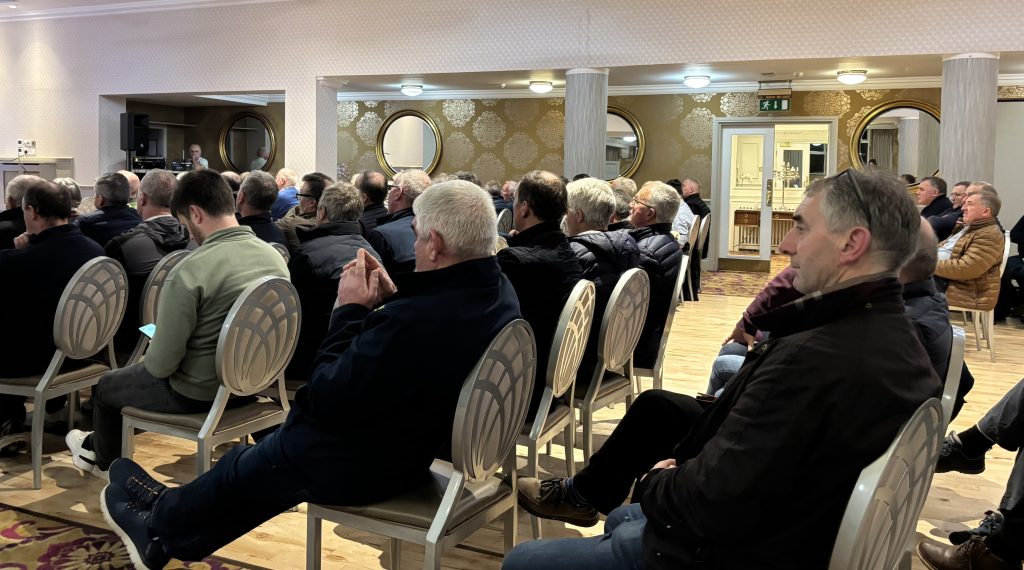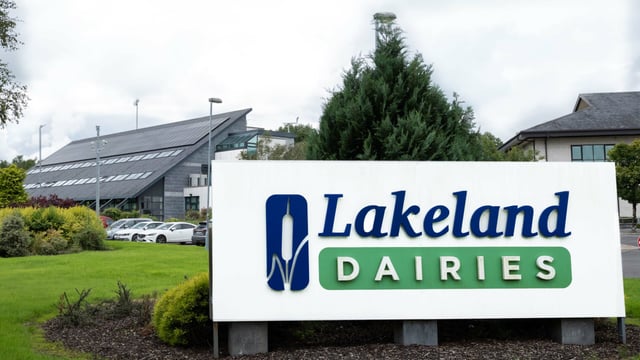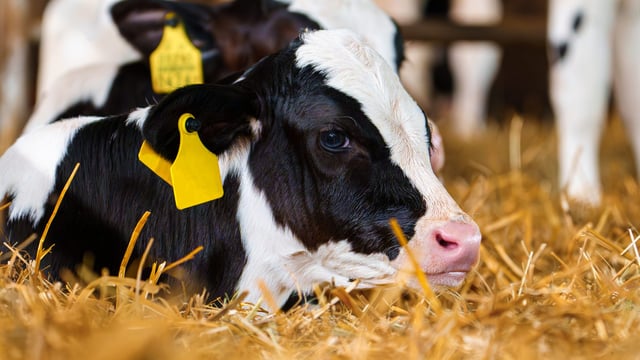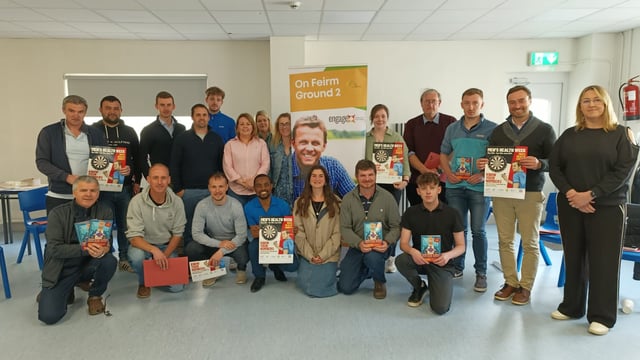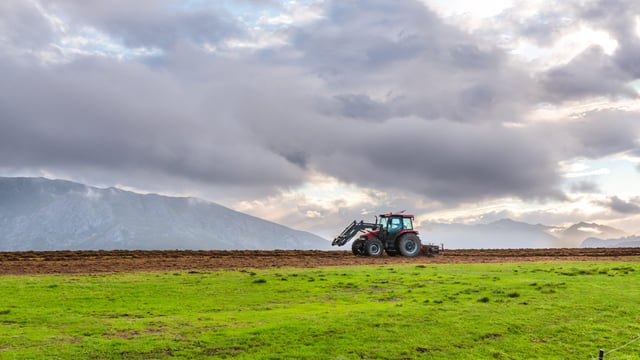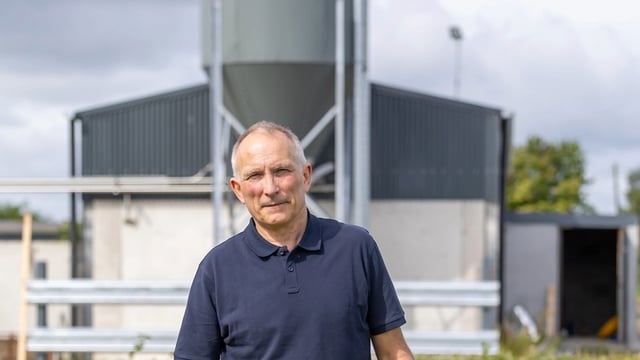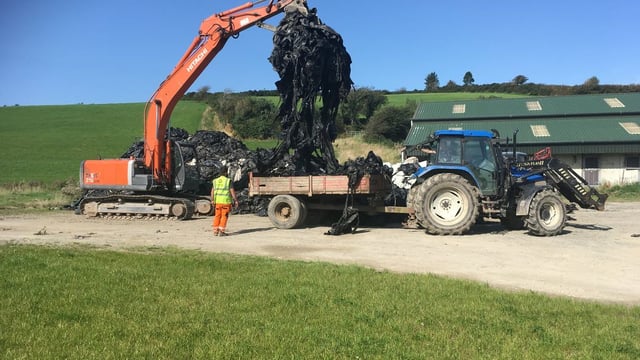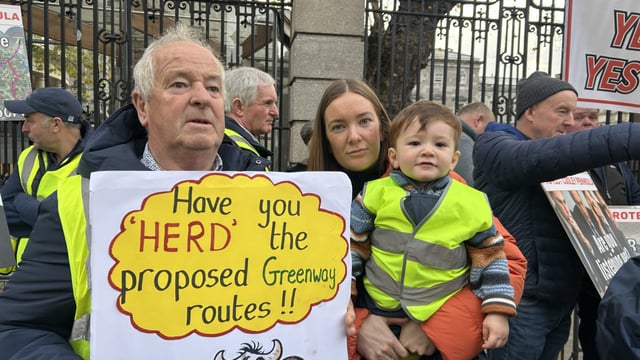Who is contesting the role of IFA Ulster/North Leinster chair and what are their priorities?
On Tuesday night (November 11), the county executive debates for the Irish Farmers' Association (IFA) Ulster/North Leinster regional chair election kicked off.
This first debate was hosted by Westmeath IFA county executive in the Bloomfield House Hotel in Mullingar.
What is the role?
The new regional chair will be directly elected by the county executives within the region.
According to the IFA, the new regional chair will have a critical role in communicating with and supporting county executives between council meetings, and co-ordinating IFA campaigns at a regional level.
As a national officer and member of council, the chair will also be dealing with urgent issues arising between council meetings and liaising directly with county executives within the region.
Who is running in the election?
Two candidates are contesting the role: Maurice Brady and Kevin Sweeney.
Currently, Co. Monaghan-based pig farmer Frank Brady is the chair of the Ulster/North Leinster region.
He will leave the position when his term is completed at the end of this year.
Maurice Brady is the Cavan IFA chair.
He is married to Claire and has three adult stepsons.
He is a suckler farmer in Laragh, Co. Cavan, farming 100ac with a contract rearing enterprise.
Among his key priorities outlined are: protection of CAP payments with a continued ringfence of pillar I and pillar II; a properly-funded succession scheme for both the younger and older farmer; and clarity and certainty on regulations regarding the derogation, nitrates and cross compliance.
Kevin Sweeney is the Louth IFA chair.
He lives in Ardee with his wife Sarah and five daughters.
The family farm rears turkeys along with milking 100 cows, rearing dairy-beef calves, and sheep.
His key priorities include: pushing to protect farm family incomes and supports; urgent lobbying for easing of planning restrictions for farm families; and further developing ideas to maintain the nitrates derogation.
What issues were discussed?
TB was a key issue during the first of the hustings, with both candidates stressing the need for farmers to be fairly compensated when disease strikes.
Maurice Brady said that a change to the approach in tackling TB is required, as figures point to a situation he described as being a "shambles".
He is urging for measures around "proper wildlife management" to be put in place and for compensation ceilings to be increased as they are "well out of kilter" currently.
Kevin Sweeney said the TB situation in Ireland is a "disaster", and said farmers are "suffering".
He said TB valuations must be reviewed as a priority, and that farmers must receive the full market value for reactors.
Schemes
Brady is seeking the simplification and targeting of schemes, such as the Suckler Carbon Efficiency Programme (SCEP) and Agri-Climate Rural Environment Scheme (ACRES).
Sweeney criticised in particular the cuts to payment rates for the National Beef Welfare Scheme and the National Sheep Welfare Scheme.
He said cuts to funding for animal welfare schemes are "not acceptable".
Tillage
Both candidates said the tillage sector is in need of support and government should deliver this, and that there is a need for an increase in the use of Irish grain in animal feed.
Brady said he advocates for "better use of nutrients on tillage farms coming from counties like my own" to help in reducing fertiliser costs.
Sweeney has called for a minimum price guarantee for poor years or natural disasters.
Mercosur
Brady said there is significant concern around "the equivalence of standards" when it comes to importing beef as part of the EU-Mercosur trade deal.
Sweeney said he fears there is no "hunger" to stop Mercosur in much of Europe, and said the biggest concern is the "long-term" impact on farmers that may occur in years to come.
Greenways
Both farmers were asked about their views on the use of compulsory purchase orders (CPOs) for greenway projects.
The IFA has outlined previously that it is totally opposed to the use of CPOs for greenways and also opposed to the severance of farms for such projects.
Brady said greenways should be on publicly-owned land only.
Sweeney made the same point, and said he has represented Cooley farmers in opposition to the proposed greenway in Louth.
Nitrates derogation
On the nitrates derogation, Brady told Agriland: "Nitrates is a big issue.
"There are derogation farmers in every county in the region and the problem would be if it goes, not alone is it loss of income for those farmers, it's a scramble for land - land that really isn't available at the moment."
Sweeney told Agriland that he is "very worried" about the derogation. His farm is in derogation.
He said if it is not retained, the potential impact on his farm could be a reduction of "25 to 30 cows".
"It would be a big blow for my farm, and a lot of farmers around this locality."
He said farmers are doing a lot to improve water quality and he hopes this is taken into consideration at EU level.
Will there be more debates?
If you are in the region and want to hear more of what these candidates have to say and to cast your vote, other election debates are taking place during November.
The seven county executives in the region - Cavan, Donegal, Longford, Louth, Meath, Monaghan and Westmeath - will hold election hustings, at which members of the county executive will vote.
All members of the seven county executives in the region are entitled to vote by secret ballot.
This includes county officers, national committees/sections and council representatives, two Macra representatives and up to four delegates per branch.
While voting takes place at the meetings, the election result will be announced on December 2 in the Irish Farm Centre.
Each meeting this month takes place at 8:00p.m.
| County executive | Venue | Date |
| Longford | Longford Arms Hotel | November 13 |
| Louth | O’Connells Clubrooms, Castlebellingham | November 18 |
| Meath | Ardboyne Hotel, Navan | November 19 |
| Cavan | Kilmore Hotel, Cavan | November 20 |
| Donegal | Clanree Hotel, Letterkenny | November 25 |
| Monaghan | Four Seasons Hotel, Monaghan | November 27 |


